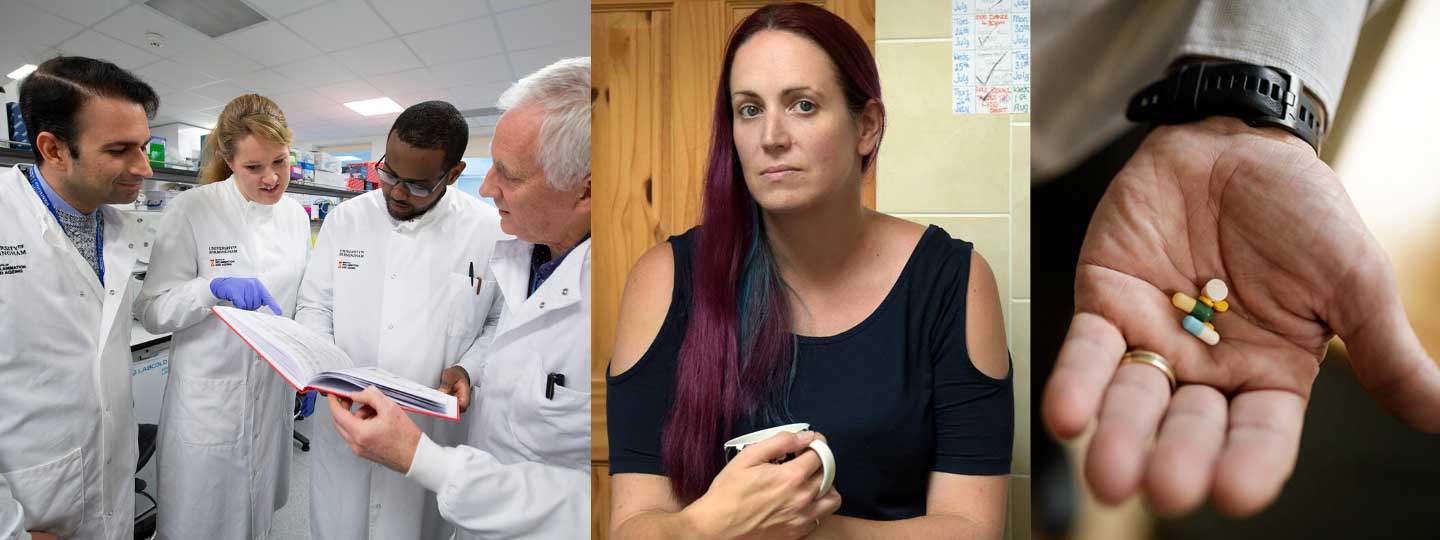How has research changed in response to COVID-19?
16 June 2020
COVID-19 has had an unprecedented impact on people with arthritis,our research, and our researchers.
We’ve strived to be as flexible and supportive as possible and understand this time of uncertainty will have a significant impact on the research we fund, as well as the health and wellbeing of our researchers, health care professionals and participants in research.
No matter how much life has changed for our researchers, they continue to keep people with arthritis at the heart of what they do. They’re committed to making life better for people with arthritis.
We’ve been blown away by the resilience and adaptability of our research community during this time and have would like to share some updates on how our researchers are doing.
While some researchers have returned to essential front-line NHS services, including doctors, scientists, pharmacists, and lab technicians, others have been conducting vital research into COVID-19, or adapting their Versus Arthritis research projects so that they can continue remotely.
Here’s a few highlights of the exciting updates we’ve received from our research community:
1. Investigating the impact of lockdown for people with musculoskeletal conditions
Versus Arthritis and theBritish Society for Rheumatologyare funding research at the University of Aberdeeninvestigating the impact of lockdownon people with musculoskeletal conditions.
Around 2,000 musculoskeletal patients across the UK (who have been involved in other studies with the University) will be sent questionnaires, and some in-depth interviews will be organised afterwards.
Professor Gary Macfarlane, Clinical Chair in Epidemiology is leading the study: “The study will allow us to understand the consequences of the lockdown for people with long-term conditions and how their health may have been affected. It will also feed into discussions about how virtual consultations may be part of regular NHS healthcare in the future.”
2. Looking at sex differences in COVID-19 and immunity
Researchers at theCentre for Adolescent Rheumatology Versus Arthritis分析了数据从一个号码吗of independent studies looking at sex differences in COVID-19 disease and immunity.
The analysis found that while there was no difference in the proportion of males and females confirmed with COVID-19, male patients had more than double the odds of needing intensive care and higher odds of death compared to females.
Researchers believe this may be due to important differences in the immune response to infection that exists between the sexes. Females having a stronger response against infection compared to males, but are more prone to developing autoimmune diseases.
3.为健康和福祉du开发高级技巧ring COVID-19
During these unsettling times, many people have been advised to shield in their homes and may not be able to access services as normal.
In response, researchers at thePrimary Care Centre Versus Arthritishave developed'Top tips to help people with joint pain during Covid-19 pandemic'. Aimed at people aged 70 and over who are currently at home with joint and pain conditions, it details advice on how to stay well during this pandemic.
Advice includes keeping active, staying informed, looking after your wellbeing, keeping a routine, eating well, and accessing healthcare and support.
4. BACK-on-LINE to help better manage back pain
Researchers at Cardiff University have designed the BACK-on-LINE digital platform to help people better manage low back pain in the workplace and whilst working from home.
BACK-on-LINEis being launched to help workers across the NHS in Wales and England, andTransport for London (TfL)is also soon launching BACK-on-LINE to all their 27,000 workers.
5. Working in collaboration and learning from ‘big data’
Researchers at the University of Liverpool led by Dr Helen Wright are keeping busy with their ’big data‘ projects, remotely accessing and analysing their experimental data.
The big data projects include aVersus Arthritis funded studythat aims to create a computational model of immune cell function in inflammatory diseases such as rheumatoid arthritis, lupus and vasculitis.
Researchers have also used the lockdown period to undertake training in programming and statistical software.
Returning to research
We’re starting to hear that some our research community who were responding on the NHS front line are returning to their research. Some labs are planning to reopen, with adjustments to ways of working in place to comply with guidelines on social distancing.
We’re committed to supporting researchers to continue or re-start their research. Find out how you cansupport our vital services and help people living with arthritis.
You might also be interested in...
Meet the researchers - Dr Helen Wright is determined to find a way to better understand arthritis.
Helen’s research seeks to understand how we can learn to switch off unwanted inflammation in rheumatoid arthritis. She spoke to us about her research and how she’s adapted her work during lockdown.
"My mission is to solve the problem of chronic pain for as many people as possible"
Professor David Walsh from the University of Nottingham has been appointed as the Director of the APDP. We asked him to tell us a bit more about himself, his involvement with the initiative and how it will ultimately help those with chronic pain.